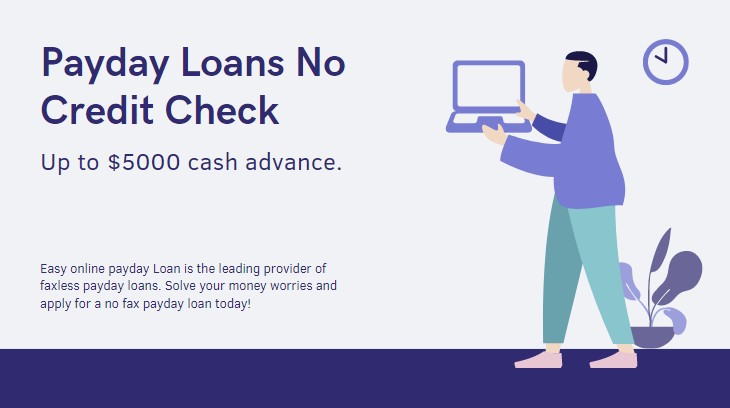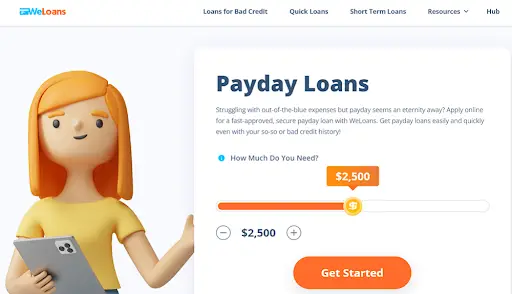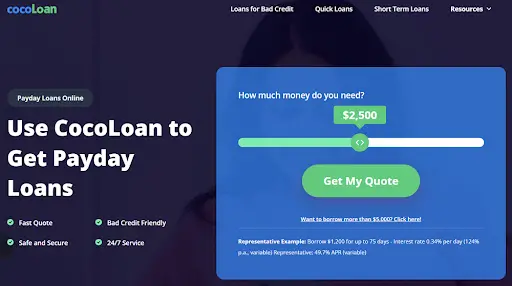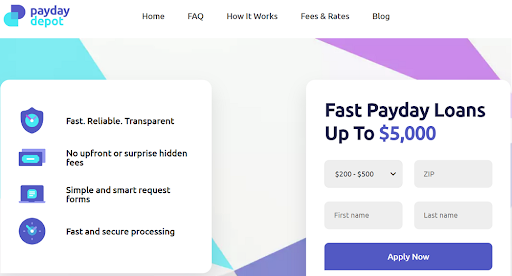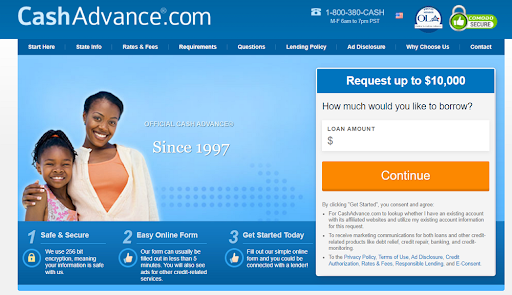Payday Loans No Credit Check Instant Approval

Desperate times often lead to desperate measures, and for many Americans facing sudden financial shortfalls, the promise of a "Payday Loan No Credit Check Instant Approval" offers a seemingly quick and easy solution. But beneath the veneer of instant relief lies a complex web of high interest rates, potential debt traps, and long-term financial consequences. This easy access to cash, while tempting, can be a dangerous path for the uninitiated.
This article delves into the world of payday loans with no credit checks and instant approval, exploring their mechanics, risks, and potential benefits. It examines the perspectives of borrowers, lenders, and regulatory bodies, aiming to provide a comprehensive understanding of this controversial financial product. It also looks at alternative solutions and ways to make informed decisions about managing short-term financial needs.
What are Payday Loans with No Credit Check?
Payday loans are short-term, high-interest loans typically designed to be repaid on the borrower's next payday. The allure of "no credit check" and "instant approval" stems from the fact that these lenders often forgo traditional credit checks conducted by major credit bureaus like Experian, Equifax, and TransUnion. Instead, they may rely on alternative verification methods, such as checking employment history, bank statements, or access to a borrower's bank account.
This accessibility makes them attractive to individuals with poor credit scores or limited credit histories who might otherwise be denied loans from traditional financial institutions. The convenience, however, comes at a steep price.
The High Cost of Convenience
The primary drawback of payday loans is their exorbitant interest rates and fees. These can translate into Annual Percentage Rates (APRs) of 300% or higher, significantly more than traditional loans or credit cards. This means that a borrower taking out a small loan, say $300, could end up owing hundreds of dollars in interest and fees within a matter of weeks.
If a borrower is unable to repay the loan on time, they may be forced to roll it over, extending the loan term but also accumulating additional fees. This cycle of debt can quickly spiral out of control, trapping borrowers in a continuous loop of borrowing and repayment.
The Borrowers' Perspective
For many borrowers, payday loans represent a lifeline in times of unexpected expenses or financial emergencies. A sudden car repair, a medical bill, or an overdue rent payment can create an immediate need for cash. Payday loans offer a seemingly quick and easy solution, particularly when other options are limited.
However, borrowers often underestimate the true cost of these loans and fail to fully understand the repayment terms. The ease of obtaining the loan can overshadow the long-term financial consequences.
"I needed the money to fix my car so I could get to work," said Maria, a single mother who took out a payday loan to cover emergency repairs. "I thought I could pay it back easily, but the fees were so high that I ended up taking out another loan to cover the first one. It's a never-ending cycle."
The Lenders' Perspective
Payday lenders argue that they provide a valuable service to individuals who are underserved by traditional financial institutions. They contend that the high interest rates are necessary to compensate for the risk of lending to borrowers with poor credit histories. Lenders also maintain that they offer convenient access to funds for those who need them most, and that they are transparent about their fees and terms.
Some industry representatives argue that regulating payday lending too stringently could drive these businesses out of operation, leaving vulnerable borrowers with even fewer options. They emphasize the importance of consumer education and responsible lending practices.
Regulatory Oversight and Consumer Protection
Due to concerns about predatory lending practices, payday loans are subject to varying levels of regulation at both the state and federal levels. Some states have banned payday lending altogether, while others have imposed strict interest rate caps and other restrictions.
The Consumer Financial Protection Bureau (CFPB) has also taken steps to regulate the industry, including implementing rules requiring lenders to assess borrowers' ability to repay loans. However, these regulations have faced political challenges and are subject to ongoing debate.
Consumer advocacy groups argue for stricter regulations to protect borrowers from predatory lending practices. They advocate for measures such as interest rate caps, mandatory repayment plans, and increased transparency.
Alternatives to Payday Loans
For individuals facing short-term financial challenges, there are several alternatives to payday loans. These include:
- Personal Loans: Banks and credit unions offer personal loans with lower interest rates and more manageable repayment terms.
- Credit Cards: Credit cards can be a useful tool for short-term borrowing, particularly if the balance can be paid off quickly to avoid accumulating interest.
- Credit Counseling: Non-profit credit counseling agencies can provide advice and assistance with managing debt and developing a budget.
- Borrowing from Friends or Family: This can be a less expensive option, but it's important to establish clear repayment terms to avoid damaging relationships.
- Payment Plans with Creditors: Negotiating payment plans with creditors can provide temporary relief without incurring high interest rates.
Exploring these alternatives can help individuals avoid the pitfalls of payday loans and find more sustainable solutions to their financial challenges.
The Future of Payday Lending
The future of payday lending remains uncertain, with ongoing regulatory debates and evolving consumer preferences. As financial technology continues to advance, new lending models and alternative credit products are emerging, potentially offering more affordable and accessible options for borrowers.
Increased consumer awareness and education are also crucial in empowering individuals to make informed decisions about their financial choices. By understanding the risks and benefits of different lending products, borrowers can avoid predatory practices and build a more secure financial future.
Ultimately, a combination of responsible lending practices, effective regulation, and informed consumer choices is necessary to ensure that all individuals have access to safe and affordable financial services. The promise of "Payday Loans No Credit Check Instant Approval" may sound appealing, but understanding the fine print is crucial to avoid falling into a cycle of debt.






